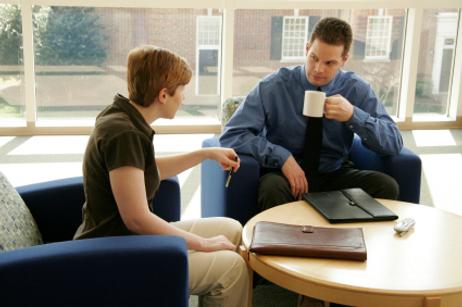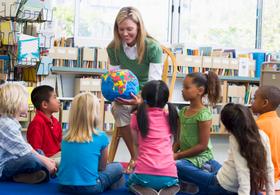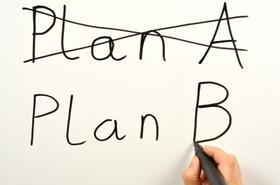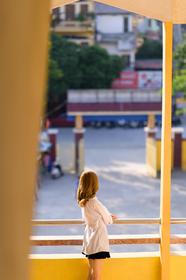4 Things to Know Before You Choose a Private School
Actually, there are many more things to know about private schools than the four items I have chosen. But let's get you started with these. They are the ones I consider most important.
For most of us, the idea of sending your child to private school begins with that nagging feeling that she's very bright and needs the very best kind of schooling possible. She needs an enriched academic curriculum. She needs time to explore subjects that interest her. She needs an athletics program with lots of options. She wants to be on the stage. These wishes and desires on her part are not always easily fulfilled in a public school setting. As a result, you start exploring your private school options. That leads you to individual private school websites and resources like this site. And it also raises many questions. So, the four points I will expand on below affirm what you probably already knew anyway.
You cannot rank private schools.
As you explore schools online, you quickly realize there is no way to rank schools. It is perfectly normal to want to send your child to the best school possible. But how can you identify that school if there is no ranking system? First, let's deal with the reality of private schools and ranking. They cannot be ranked. Why? Because they are unique. We have approximately 400 boarding schools in the U.S. Each one is different. Not better. Not worse. Simply different from all the others. Their locations, their facilities, their curricula - all are different. The commonality is that they all offer excellent education. That makes ranking schools very difficult, if not impossible. Popular media simplifies the ranking of private schools by focusing on selective schools. That might look good, but what about the other 3,000 private schools? Why are they not ranked? They are not ranked because it is virtually impossible to do so.
You can compare programs, course offerings, and other factors using our checklists. Checklist for Comparing Schools: Administration and Faculty and Checklist for Comparing Schools - Curriculum and Instruction are designed to keep all the essential points organized. Once you identify what your requirements are, then matching a school with those requirements is the next step in the process of choosing a school.
Look at the fun these students are having studying Turkey.
At this point, you will realize that ranks are not necessary. Finding the best fit is. Get the fit right, and you will achieve one of your most important goals: making your child happy. If the fit is wrong and she is unhappy, that's not your desired result.
There's a private school for virtually every need. Since there are private schools for almost any need, you must list your requirements early. If your child is old enough, involve her from the beginning so that she thinks going to private school is her idea. Perhaps you were thinking of a local private high school. But as the two of you start looking at all your options, you find yourselves looking at boarding school. Don't panic. Add it to the list and work through that list logically. It's the same if she decides that field hockey is vital to her. Find a school or two with excellent field hockey programs and add them to the list.
What should be on your list of requirements?
Academics trumps everything else as far as I am concerned. What courses are offered, how they are taught, the educational philosophy, and so on are very important to us parents. If you begin the school selection process early enough, you will have plenty of time to read up on the different curricula and educational philosophies. Each private school has its slant on academics. The courses may look the same from one school to the next. Dig a bit deeper, and you will discover many subtle differences. Get the academics sorted out before you move on to the other essential components of your child's educational experience: sports and extracurricular activities. Here is a quick look at one approach that you find in private schools, namely, progressive education.
There's a private school for virtually every budget.
If you are thinking that shopping for a private school is kind of like going to the supermarket and just buying anything you want and not worrying about what it costs, for some people that is true. But most of us have to live within a budget. So it is with private schools. The difference is that you can identify a couple of schools that offer everything you are looking for. Then go visit the schools. Meet the admissions staff. If everything clicks, part of the formal application process will be an application for financial aid.
If finances are a significant hurdle, depending on your situation, a dozen or so schools will give your child a completely free education. So, don't think that sending your child to a private school is an impossible dream. It's much more affordable than you think. The secret is to be open and honest about your situation and ask many questions.
But wait, there's more! There are a handful of tuition-free schools. They were established years ago by generous benefactors. And schools like the Cristo Rey schools offer drastically reduced tuition.
Use an educational consultant.
I have done it both ways. Yes, we thought we could choose the right school for our eldest daughter. All by ourselves. This was in the days before the Internet. So that meant lots of letters and visits. Of the three schools we applied to, our eldest daughter was accepted at only one. Fortunately for us, it was indeed the right school. Our daughter did well and was happy. So were we.
The second time around, we hired a consultant. The late Hugh Silk taught at Collegiate School in Manhattan and The Masters School in Dobbs Ferry, New York. He knew schools. And people. And so much more. He gently nudged us away from schools, which were an impossible stretch and advised a mix of schools which included a 'safe' school - one we knew our child would get into. The other two schools were slightly more challenging by degrees. But she ended up getting two acceptances and a waitlist.
Consultants know what they are doing. For the amount of money you will spend on your child's education, doesn't seeking professional advice just make good sense?
I hope this overview of choosing a private school gives you a better idea of what to do. Stay organized. Ask lots of questions. Stick to your requirements and objectives. The results will please you.
Questions? Contact us on Facebook and Instagram. @privateschoolreview
#PrivateSchoolSelection #SchoolFit #EducationBudget #ConsultantAdvice #SchoolRequirements #privateschools















